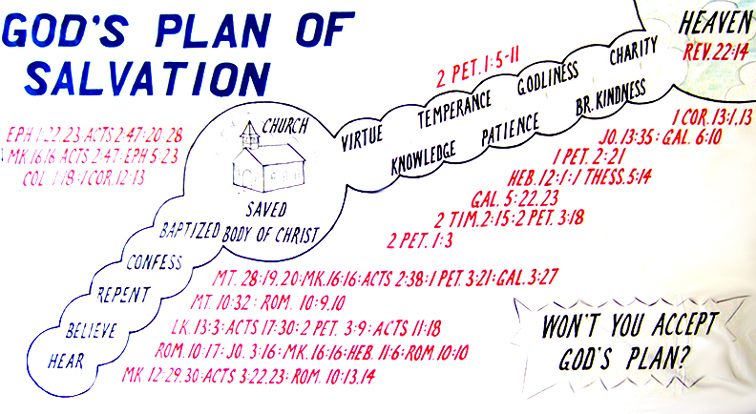
The unfairness of God
God does not treat everyone the same. Many would call that “unfair,” but he has provided a solution for that. It’s not the solution any of us would have come up with on our own. God’s solution is us. God’s solution is the Kingdom.
Jesus’ work on earth was incomplete when he ascended to heaven. He left his disciples to finish the work, and we are those disciples. We are the solution, and there is no plan B.
We are the “body of Christ” because we are to be Jesus’ hands and feet to do continue his work.
God is not a “respecter of persons,” but that means that he treats rich and poor, noble and common alike. It doesn’t mean that everyone is elected. Quite plainly, not everyone is. Whether you are Calvinist, Arminian, Semi-Pelagian, or whatever, you have to accept that God elects and does not elect everyone. That is his nature. And that has been true going back to Abram and Sarai at least.
Does God’s love win? Of course. But what is a “win”? God wants everyone to be saved, but he also wants everyone to believe in Jesus. Why? What is the big deal about Jesus? Why not just tell everyone to be good?
Well, Jesus reveals God to us. Jesus is God’s word because he most effectively reveals God’s true nature. If we reject Jesus, we reject God.
Moreover, the story of Jesus — a true story — is the story of sacrifice for others and reliance on God. And that’s what we’re called to. We want to turn Christianity into doctrine and logic and scholarship, but it’s really about dying to self and living for God — which is done by living for those whom God loves. Christianity is about becoming so much like Jesus that we voluntarily pick up crosses and follow him.
You can’t do that in hell or purgatory or whatever. That has to happen in the dirty, nasty, fallen, broken world we live in. And so this is where we have our chance.
We evangelize — teach the gospel — by living the gospel. And that requires that we live the gospel both personally and in community. Jesus is too big to emulate by ourselves. We can’t do it, and so God gave us each other to support and build each other up into the image of God found in Jesus.
We worship to be transformed more and more into his image. We serve, and as we serve, we are transformed — which makes us better servants. It’s actually a pretty good plan. It’s just that not many have really tried it.
What we prefer is ad campaigns, marketing, banners, and such like. Or we prefer to hide cloistered in our buildings, kept unstained by the ugliness that surrounds us — when we’re called to touch the lepers and eat with the prostitutes and so demonstrate Jesus to the world. You see, that’s another reason faith in Jesus is so important. We can’t emulate an abstraction. We can’t tell stories about a theory. We can only follow a person.
And so God takes our faith and deems us righteous — innocent of the charges brought against us. And yet we’re guilty. But by erasing the charges, we become suitable vehicles for the indwelling of the Spirit. God can live within us when we’re counted sinless. And when the Spirit enters us, he transforms us so that we go from being adjudged righteous and begin to do righteousness and justice. We are transformed by God’s own hand from beggars — even enemies of God — to doers, that is, people who do the same sorts of things that God himself does.
We are no longer respecter of persons. We love and care for the orphan, the widow, and the sojourner. And thus in God’s eyes, we become —
(Rom 2:7 ESV) those who by patience in well-doing seek for glory and honor and immortality, he will give eternal life;
— and so we will receive —
(Rom 2:10 ESV) glory and honor and peace for everyone who does good
— and so we become the —
(Rom 2:13 ESV) the doers of the law who will be justified.
When we do the law in the same sense that Abraham’s descendants do law — we do “righteousness and justice.” Not perfectly, no more perfectly than Abraham did. But we are faithful. We honor the call to follow Jesus, just as Abram honored God’s call to journey to Canaan.
Election
And we elect. Yes, really, we elect. We decide whether to preach to Nigeria or to China or to the lost couple next door. And our decisions have eternal consequences.
We elect whether to send missionaries or help the poor or serve the undeserving — or not. And we really, really wish there were a better way and a more convenient solution, since preaching the gospel is so very inconvenient, time consuming, and just plain hard. But that’s the plan.
Is it fair? Does it matter? God gave up his Son, who after three years of preaching, had a congregation of 120 to show for it. But God knew that, like a mustard seed, small beginnings could lead to world-changing results.
But we don’t have that much faith. One conversion to us is hardy worth the trouble. We want lots of conversions now, and we want them fast — or else we just won’t bother. We certainly don’t want to send our sons and daughters to the mission field for poor results — and so we often elect to have no results at all.
You see, as the body of Christ, we are put in the difficult position of making God-like decisions. We decide who gets to hear the gospel and who doesn’t. We decide who gets AIDS education and who doesn’t. We sometimes even decide which countries get hospitals.
We elect whether we’ll work together or compete with each other or not work at all. We elect whether to declare as the enemy the church down the road — or damnation, poverty, and disease. We elect.
And our elections change the history of the world — not just today but for forever. For good or bad. But God lets us choose.
Is that fair? God sure seems to have made some poor choices about who will continue the work of Jesus! We just aren’t all that Christlike. If I were a native of India begging for a preacher to come to my village to teach me the gospel, I’d consider that very unfair. I’d suggest to God that he find a better plan.
But that’s God’s plan. And it’s not going to work until we honor God’s commands —
(Rom 12:1-2 ESV) I appeal to you therefore, brothers, by the mercies of God, to present your bodies as a living sacrifice, holy and acceptable to God, which is your spiritual worship. 2 Do not be conformed to this world, but be transformed by the renewal of your mind, that by testing you may discern what is the will of God, what is good and acceptable and perfect.
(Rom 15:5-7 NAS) 5 Now may the God who gives perseverance and encouragement grant you to be of the same mind with one another according to Christ Jesus, 6 so that with one accord you may with one voice glorify the God and Father of our Lord Jesus Christ. 7 Therefore, accept one another, just as Christ also accepted us to the glory of God.
You see, the most unfair thing about God is that he left so much of his plan up to us — and we’ve been very unfair to God and to a lost and suffering world by not doing nearly enough about it.
 History of the argument
History of the argument


 Starting Monday, I’ll be on vacation for a week at the Gulf coast. For a week. At the coast. Really. This is the first vacation I’ve taken in over a year, so I’m really looking forward to it.
Starting Monday, I’ll be on vacation for a week at the Gulf coast. For a week. At the coast. Really. This is the first vacation I’ve taken in over a year, so I’m really looking forward to it.


